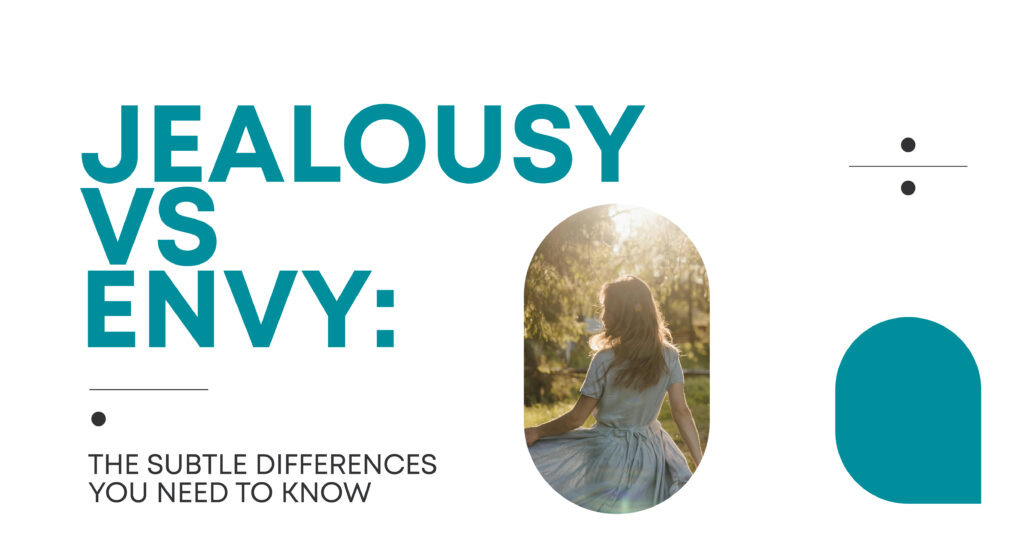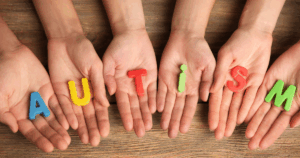The human experience includes moments when another person achieves success and our body responds with tightening sensations. The feeling persists in your system, although it doesn’t produce immediate physical symptoms like wind loss or breakdowns. The nature of this feeling remains unclear to you even after the initial occurrence. The jealousy vs envy differences remain ambiguous to many people. The distinction between these emotions requires understanding to protect your emotional health when they appear together in life.
This article functions beyond basic emotional classification purposes. The main goal is to provide a clearer understanding. This guide will assist you in identifying the emotions that emerge from listening to someone else’s good news and experiencing feelings of diminishment when others gain attention. Having a clear understanding of your feelings enables you to develop better abilities for managing them by comparing jealousy vs envy in real-time situations.
Jealousy Definition and Its Emotional Roots
Jealousy serves as an emotional response that emerges when something important to you appears under threat. The emotion of jealousy develops from your concern that another person will claim something important to you. The fear does not need to be logical, nor does it define your character as negative. Your deep emotional connection creates this feeling, which leads to your concern about losing your position in vital relationships, groups, and situations that matter to you.
The emotional response of jealousy never stems from admiration. This emotion revolves around detected dangers. When you observe someone drawing attention from your partner or notice your colleague receiving credit for your work, the feeling inside you becomes tight. Your instinctual emotional reaction stems from past events, together with unaddressed doubts that continue to affect you. These are classic jealousy examples that surface more often than people admit.
Mental Health Center of San Diego
Understanding Envy Definition
Envy examples are a little different. Envy manifests through a desire to obtain what others already possess. The feeling encompasses various aspects such as professional advancement opportunities and relationship status, as well as professional accomplishments and effortless living.
Envy functions through comparison rather than the protective nature of jealousy. You do not experience a sense of loss regarding this situation. Your awareness of lacking something you want creates a gentle discomfort, which starts to develop.
| Emotion | Rooted In |
| Jealousy | Fear of losing something personal or valued |
| Envy | Wanting something someone else has |
Jealousy Examples in Everyday Life
Jealousy tends to be sneaky. Jealousy rarely appears through overt reactions or deliberate accusations. The emotion enters your life by affecting your responses and internal dialogue, as well as your interactions. The feeling of jealousy can occur during everyday moments when your close friend shares news about meeting a new person, and you begin to feel uncomfortable. This kind of emotional moment is deeply relevant in the meaning of jealousy vs envy in psychology, where the underlying motivations are studied to understand how they affect personal dynamics.
The following indicators show that jealousy might be present in your emotional state:
- You experience jealousy when your friends plan activities without including you.
- A sudden stomach drop occurs when someone other than you receives praise from your partner in your presence.
- A conversation plays in your mind showing you felt unimportant and unseen.
- Your tendency to check up on others occurs when you want to observe their activities.
- You become upset when others receive acknowledgment instead of you.
Jealousy becomes difficult to identify because it commonly conceals itself behind alternative emotional responses. You may believe you feel exhausted or irritated yet beneath these emotions lies a deep fear about losing something essential to you. You need to recognize the feeling before taking any immediate action.

Envy Examples and Common Triggers
In the envy definition, envy expresses itself in a less intense manner than jealousy. The feeling develops gradually when you witness others achieving their goals yet experience stagnation. Observing someone initiate a new business venture or purchase a home or achieve romantic success makes part of your mind wonder when you will experience similar success. These are familiar envy examples that often go unspoken.
Your envy arises because you feel missing from your own life when someone else achieves success. In those moments, the meaning of jealousy vs envy becomes more than academic—it becomes deeply personal and emotionally charged.
Here are some examples of envy in action:
- Feeling unmotivated after seeing someone share exciting life news
- Mentally downplaying a friend’s achievement to feel better about your own pace
- Criticizing someone’s win in your head, not because they deserve it, but because it stings
- Avoiding events or conversations that make you feel behind
- Questioning your own choices after seeing someone else’s progress
| Trigger | Why It Hits Hard |
| Career achievements | Highlights insecurities around your own timeline |
| Relationship milestones | Brings up feelings of being alone or left behind |
| Financial wins | Sparks fear of not having enough or falling short |
You are not a bitter or selfish person because of envy. It just shows you where you feel a sense of lack or desire. You learn to detect these emotions without embarrassment and then begin to fulfill your needs directly.
Jealousy vs Envy – Psychology Insights
Psychologists explain the following differences between the two emotions which appear similar at first glance. Jealousy emerges because people fear losing something important to them whereas envy emerges from feeling insufficient. These emotional undercurrents influence the way we respond, often without us realizing it.
The cognitive process of jealousy activates threat-detection responses which commonly appear in relationship dynamics. Envy functions through self-assessment and relative judgment which primarily emerges when identity or personal worth becomes relevant.
Knowledge of these patterns enables you to pause before reacting so you can respond clearly rather than sink into shame or bitterness.
Jealousy vs Envy – Meaning in Relationships
Jealousy and envy create changes in our behavior when we experience them in relationships. Both emotions can generate resentment, insecurity, and passive aggression when left unmanaged, which results in gradual erosion of connection.
Jealousy in Relationships often involves:
- Worrying that your partner is getting too close to someone else
- Feeling uneasy when friends bond more with others
- Wanting reassurance but not knowing how to ask
Envy in Relationships can look like:
- Comparing your dynamic to others and feeling “less than”
- Resenting a partner’s freedom, success, or social life
- Silently wishing your connection felt more exciting or fulfilling
Neither emotion makes you wrong or broken. They simply point to unmet needs. Your honesty about the triggers enables you to solve the original issue rather than engage with superficial symptoms.
Improving Interactions With Emotional Awareness
The process of emotional awareness for jealousy and envy serves two functions: it helps you understand yourself better and enhances your interactions with others. The identification and recognition of these emotions lead to stronger relationships instead of causing harm.
Examples of when emotional awareness is in action:
- Take time to respond instead of acting on impulse when something hurts you by identifying the specific parts of yourself that feel vulnerable or excluded.
- When you want to express your feelings avoid blame by using phrases starting with “I noticed…” instead of starting with “You made me feel…”
- Redirect the focus: Instead of spiraling in comparison, ask yourself what this feeling is pointing you toward
- Celebrate without shrinking: You can acknowledge others’ success and still honor your own growth
The development of self-awareness will not prevent you from experiencing jealousy or envy in the future. The ability to notice these feelings enables you to use them as signals instead of becoming stuck by them.
Mental Health Center of San Diego
Explore Support With Mental Health Center of San Diego
The emotions we try to avoid often lead us to learn valuable lessons. You should consider seeking professional help if jealousy and envy continue to surface frequently or if they affect you intensely. The feelings are valid yet they should not dictate your existence.
The Mental Health Center of San Diego requires no specific knowledge from you. Our team provides expert help in an atmosphere that allows you to identify your patterns without facing criticism. Our team assists clients in converting emotional challenges into meaningful progress through individual therapy emotional processing techniques and relationship guidance. We provide assistance to help you transform emotional pressure into actual change.
Reach out to Mental Health Center of San Diego—we’re here to help, every step of the way.

FAQs
What is the definition of jealousy, and how does it differ from envy in terms of emotional response?
The definition of jealousy involves fear of losing something important, while envy exists as the desire to have what others possess.The emotional response between jealousy and envy differs because jealousy emerges from losing something valuable while envy develops from noticing missing possessions that you wish to have.
Can you provide examples of jealousy and compare them to scenarios commonly associated with envy?
Some examples include the time when your best friend begins to develop close relationships with other people. Another example can include the observation of a coworker receiving a promotion you wanted leads to envy because you start doubting your own career advancement.
How do jealousy and envy manifest in psychological terms, and what are their key differences?
Jealousy functions through threat detection because it activates defense mechanisms that protect against potential loss. The psychological process of envy activates internal mechanisms that trigger comparison and affect self-worth because it emerges from recognizing what is absent in your life.
What do jealousy and envy reveal about our emotional state, and how do their meanings impact personal relationships?
These emotions reveal our feelings of insecurity, together with our sense of being undervalued and our disconnection from others. Relationships experience tension and communication breakdowns when these emotions remain unaddressed but honest processing leads to stronger trust and understanding.
Mental Health Center of San Diego
What are the psychological dynamics between jealousy and envy, and how can understanding these differences improve interpersonal interactions?
Jealousy protects existing relationships, but envy drives people to desire external things. Knowledge of these emotional differences enables you to recognize projection and resentment so you can respond through insight rather than impulsive reactions.









